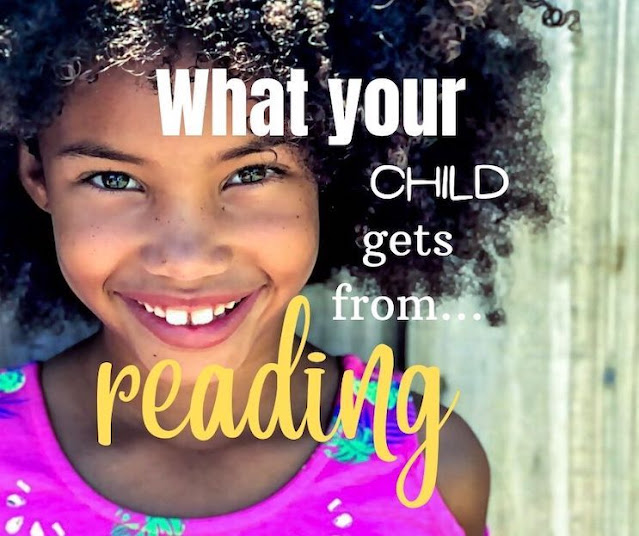What Your Child Gains From Reading?
So, what does your child gain from reading? Well, as it happens…a great deal. Your child will derive enormous benefits from reading and parents,developing a love of books, will easily be one of the most important activities you can do tobenefit your children.
In this post we’ll look at a foolproof method for choosing ‘the’ right book for your child and an incredible 10 point checklist to ensure your children get all the unbelievable advantages associated with reading, that include:
- Increased empathy
- Heightened emotional intelligence
- Wider vocabulary
- More effective problem solving skills
- Greater tolerance and understanding
- Increased resilience
How To Choose ‘Exactly’ The Right Book For Your Child?
There are many theories we could turn too that would satisfy this problem however, I want to explore the advice offered by academic Professor Stephen Krashan.
Professor Krashan, (The Power of Reading: Insights from the Research), a noted language acquisition expert, speaks of reading literature that is, ‘compelling’.
Compelling literature
Krashan describes, compelling literature, as literature that is so utterly and so completely engrossing, the reader engages in what is termed, free voluntary reading i.e. reading for pleasure.
Ever more usefully, Professor Krashan goes further to state, compelling literature can be ‘anything’ the reader (your child) finds interesting or compelling, in the shape of; comics, poetry, graphic novels, books or even posts.
We would also add, how important it is to experiment and, to try your young reader with literature taken from different genres: sci-fi, fantasy, mystery, romance, adventure.
OK, now let’s get started on how to really access the amazing benefits of reading.
A 10 Point Guide to Get Your Child Reading
1. Firstly and perhaps most importantly, ‘Get Caught Reading’ which is the name of a US based campaign designed to encourage reading.
It leans on the psychological concept of ‘conformity’ and this idea relates ‘a type of social influence, involving a change in belief or behaviour in order to fit in with a group’. Saul McLeod PhD, What Is Conformity?
That is, your child will conform to the normalised behaviours of key figures they see around them, i.e. they will copy frequently repeated behaviour they see in their environment, from: you, older siblings, cousins, carer givers friends, TV etc.
This exposure will dramatically increase the chances of your child expressing any such behaviour later in life, in this case reading.
2. Get involved, when reading to your child make it fun. Use your; voice, face and body, to make the experience of reading and books pleasurable and bring the story and characters to life…make it compelling!
3. Start developing your child’s reading muscle early and get your child familiar with books to make it a lifelong, lifestyle habit.
Create regular reading sessions, visit local libraries and drop in on your local book store. Today, many book stores incorporate some kind of café, so why not make an afternoon of it and get lost in the world of books!
4. Timing is everything, so try to reduce distractions and/or avoid competing for your child’s attention with the time their favourite TV programme is about to begin!
5. Lighting, make sure your reading nook is comfortable and well lit as you don’t want to tire the eye muscles too early into the reading session.
6. Make sure there’s plenty of fresh air as the brain needs plenty of it. In fact, the brain uses a massive 20% of our bodies total oxygen intake.
7. Keep your young reader well hydrated throughout the day to ensure they’re bright, alert and ready, for more compelling adventures!
8. Be prepared to read their favourite story again and again (and maybe again)! So think about get others involved: older siblings, aunts, uncles, grandparents, family friends.
9. If your child can find a book series they enjoy, so much the better. And spinsoffs from your child’s favourite cartoon will no doubt involve books, so that’ll be a great place to begin.
10. Reading sessions shouldn’t be long and never to the point of fatigue or boredom, (this is important). Pause your reading sessions using the cliffhangers the writer has already embedded into the story to keep your young reader eager for more adventure!
Bonus tip: Talk about what you’ve just read.
- What came up for your young reader?
- What surprised them?
- What excited them?
- Discuss the ‘why' a particular character may have taken the decision they did?
- Together, can you develop an alternative plan of action…what would your young reader have done differently?
Posing just a few questions like these as part of your reading session will be enough to give your child’s brain a crucial extra workout to truly unlock those gifts we started with earlier.
Conclusion
When it comes to reading teaching your child the love of books is easily an unparalleled ‘gift’.
With no apparent downside your children will grow to enjoy rich rewarding relationships and a life of meaning and in return, the world will benefit from having another well-adjusted point of light.
Embrace parenting triumphs with Parents Quietly Succeeding. Join us – where success speaks volumes in every quiet moment!




Comments
Post a Comment